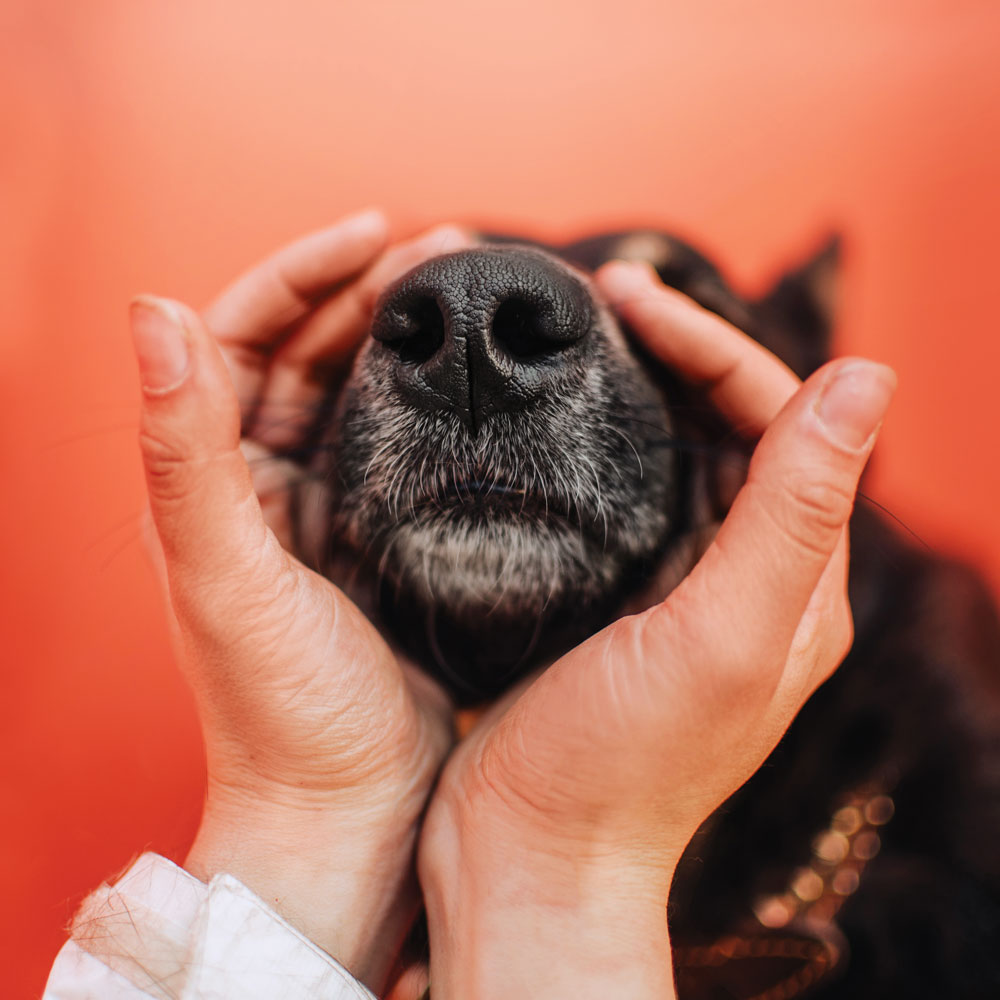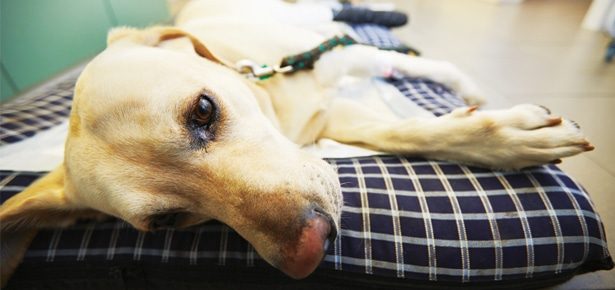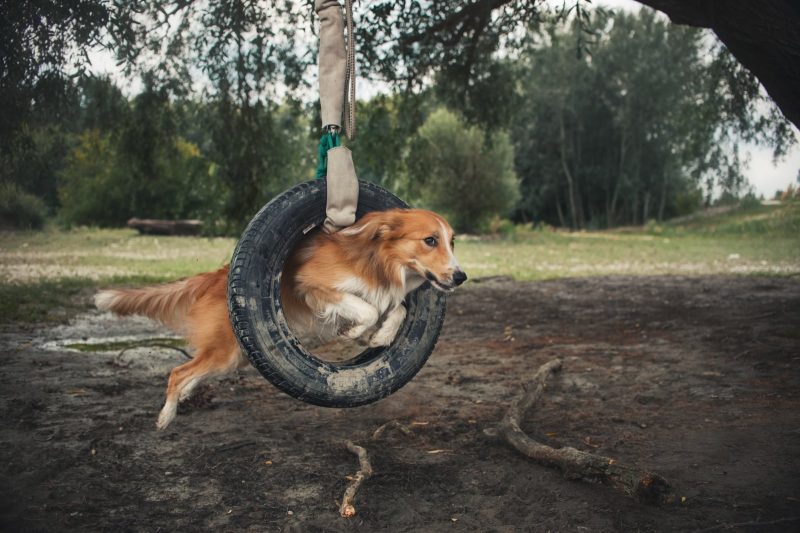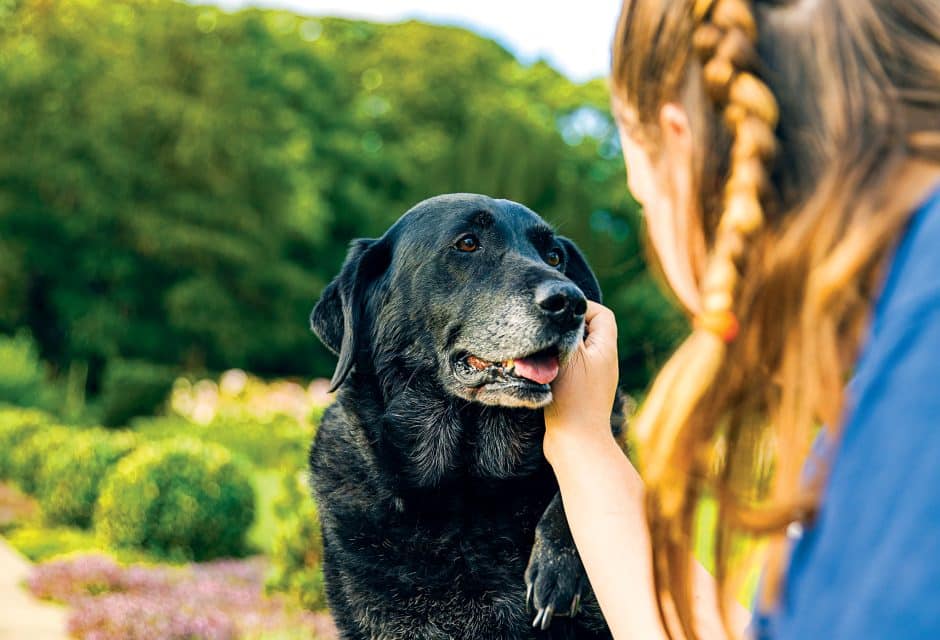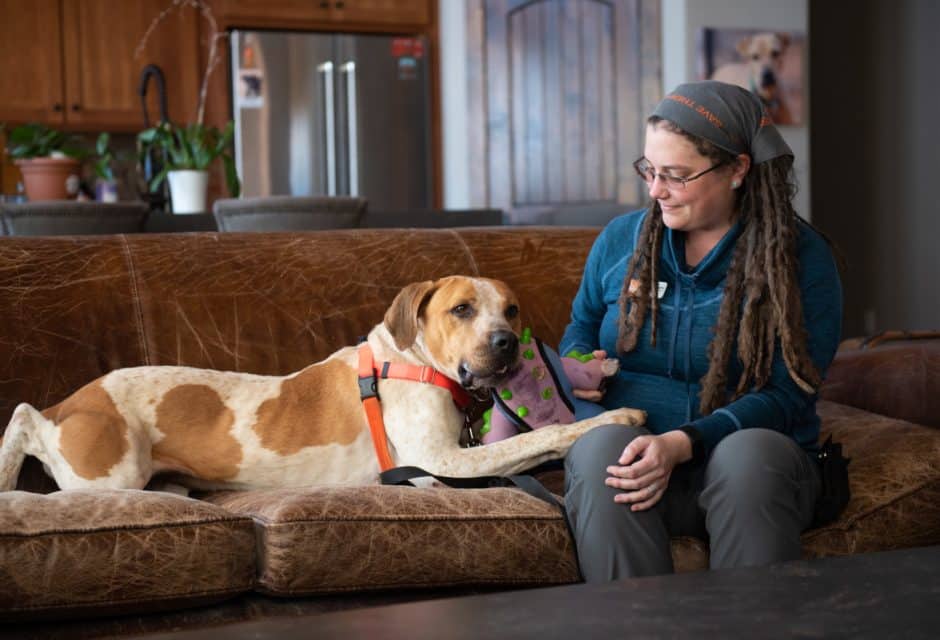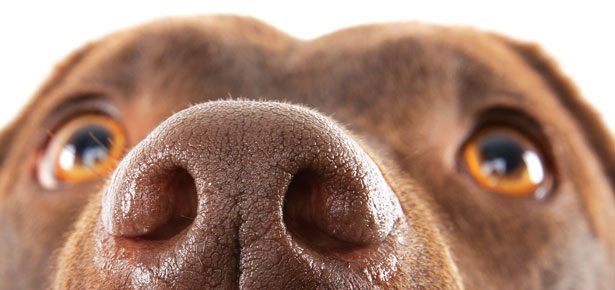
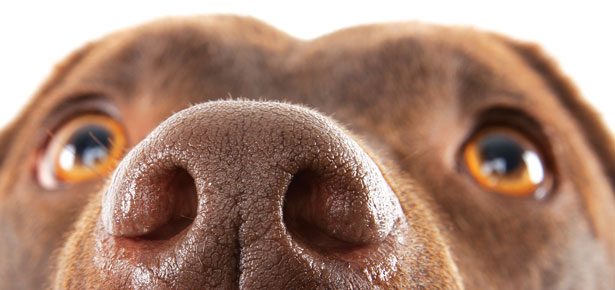
What Your Dog Can Tell By Smell
Mood, illness, where you’ve been—your dog’s nose can determine a whole lot about you.
Has your dog ever given you a thorough once over after you’ve returned home smelling of another dog? Are you unwittingly wearing certain fragrances that repel dogs? (More about that later.) Scientists say dogs can smell 10,000 to 100,000 times more acutely than us. Given this, they most certainly care what we smell like—and they can tell a whole lot by our scent.
James Walker, former director of the Sensory Research Institute at Florida State University, and colleagues came up with that mind-boggling estimate during a rigorous study of canine olfaction. "Let's suppose they're just 10,000 times better, he told PBS. “If you make the analogy to vision, what you and I can see at a third of a mile, a dog could see more than 3,000 miles away and still see as well,"
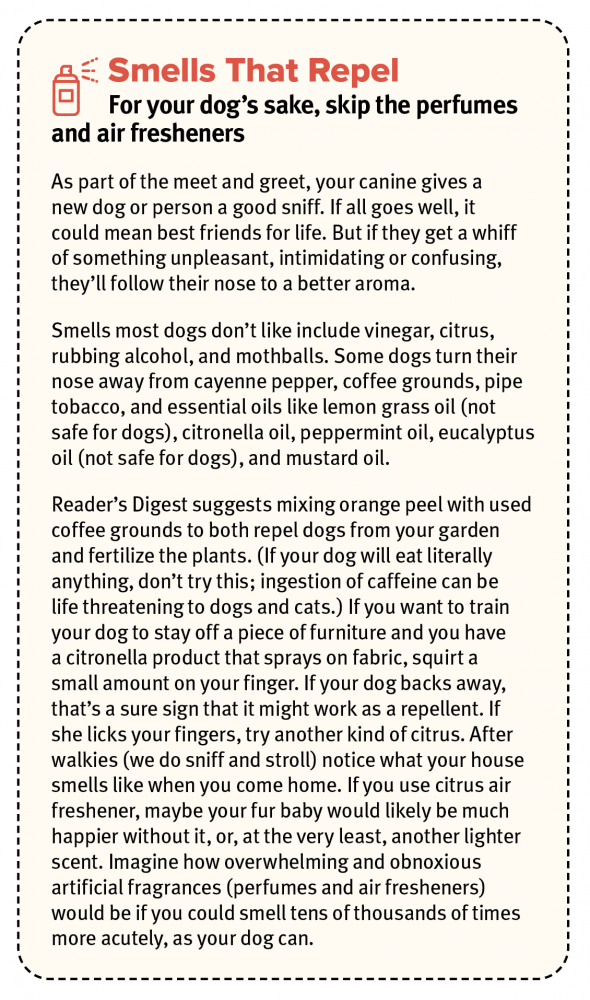
“When I brought dogs and people into my lab, I started to examine the relationship with dogs and humans,” Alexandra says. I am sure you could tell me about your dog’s personality, emotions, and desires, she says—and if your dog could talk, he could tell me about yours.
Researchers have shown that dogs can determine a person’s mood by smell alone (though they also get cues from our body language). And dogs definitely respond to the way people smell, especially those they care about, say experts such as human neuroscientist Gregory Berns.
“What the dog sees and knows comes through his nose, and the information that every dog—the tracking dog, of course, but also the dog lying next to you, snoring, on the couch—has about the world based on smell is unthinkably rich. It is rich in a way we humans once knew about, once acted on, but have since neglected, Alexandra says. In Our Dogs, Ourselves, Alexandra says that each day dogs perform surprising and sometimes alarming feats of olfactory perception and they can teach us to relearn some of our long-lost olfactory skills.
“Dogs notice a change in body chemistry when you are sick, but humans cannot isolate a particular odour—although science is trying to do so,” Alexandra continues. “Humans were more familiar with body chemistry before science got advanced and before dogs were used to detect illness. For instance, doctors said a person with TB smelled like brown bread.” (Dogs can identify smell molecules in the range of parts per trillion, right on the limits of what even modern science can detect even if we know what we are looking for.) “All sorts of diseases are detectable by smell but having a doctor smell you isn’t as popular as a dog, so we moved away from that diagnostic method,” says Alexandra, laughing. “I believe that dogs do care what you smell like.”
“We can wash our bedding but I think our dogs prefer their bed or your bed unwashed—of course not to the point when it is growing spores. But what we think of as clean odour may not be desirable,” Alexandra continues. “My dog would sleep on my shoe, for example. People talk about their dogs chewing clothes—mine chewed underwear. They are not chewing new clothes: You have left your odour on them and that is desirable.” Although Alexandra isn’t suggesting that we curtail washing ourselves and our clothes, she does make a point—dogs prefer our familiar odours to sanitized ones.
Most dogs know (and abhor) that sterilized smell of the vet’s office. Mine can tell when someone has been to the hospital—I believe it reminds them of the veterinarian clinic—and it makes them really stressed out.
Dogs Like Happy Humans
Researchers have shown that dogs can determine a person’s mood by smell alone. Human emotions manifest physically in pheromones, or chemosignals, that are emitted by the body, and dogs can decipher those changes. This is thanks in part to an organ we don't possess: the vomeronasal organ, also known as Jacobson's organ. It’s located in the bottom of a dog's nasal passage and picks up pheromones.
Who hasn’t heard the expression, “dogs can smell fear?” When you’re anxious, you start to perspire. You and other people may not notice, but a dog will, because dogs can have up to 300 million olfactory receptors in its nose, whereas the average human only has about six million.
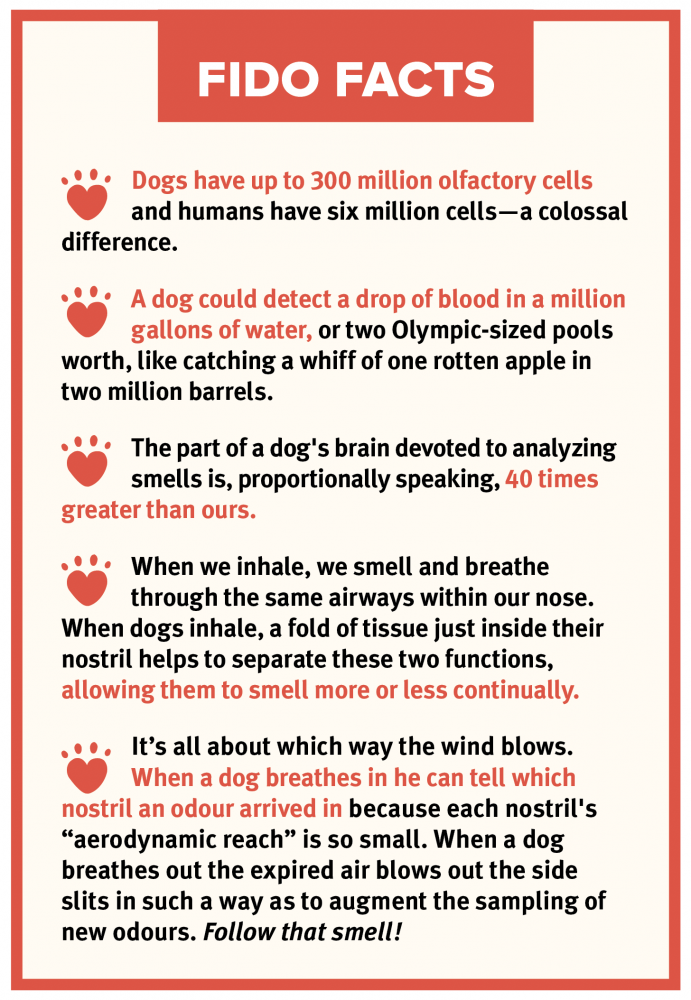
Take the case of George, a 43-pound Standard Schnauzer who was trained to detect melanoma. In one case, George indicated a mole that had previously been examined by three different doctors and biopsied twice. Doctors finally excised the mole and sent it to the pathology laboratory. A cell-by-cell analysis showed the patient had Stage II melanoma. George saved the patient’s life.
Andreas theorizes that affection plays a role in dogs caring what we smell like. “When dogs are trained to detect drugs, the training paradigm is the slave-master relationship: the dog is subservient; the motivation is to achieve love,” he says. “On the other hand, I work with Claire Guest, CEO of Medical Detection Dogs. She trains—not enslaves—dogs to detect cancer and part of the reason they do so well is because they are having fun and they care about you. Maybe you won’t be so much fun if you are sick, so they are doing it for themselves and for you.”
If you’ve ever thought your dog could tell when you were unwell, you weren’t wrong. “If a person is infected with a virus or bacteria, they will smell different,” says Alexandra. “Dogs are preternaturally sensitive to changes in their people.”
Join the newsletter and never miss out on dog content again!
"*" indicates required fields
By clicking the arrow, you agree to our web Terms of Use and Privacy & Cookie Policy. Easy unsubscribe links are provided in every email.
